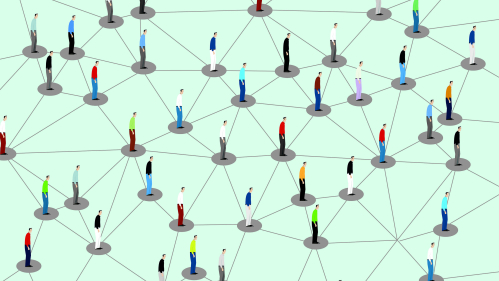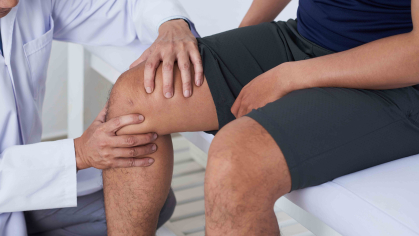Rutgers to Support Statewide Contact Tracing Program

Rutgers School of Public Health to train the first group of the state’s auxiliary COVID-19 contact tracing workforce.
Rutgers University has partnered with the State of New Jersey to launch the Community Contact Tracing Corps Program, a key step toward slowing the community spread of COVID-19 as the state begins to ease its social distancing guidelines. The program is being led by the Rutgers School of Public Health.
The Rutgers School of Public Health, which is part of Rutgers Biomedical and Health Sciences, is working with the New Jersey Department of Health to prepare a diverse contact tracing workforce that will initially include students studying public health, social work and related fields at Rutgers and other schools across the state. With training tools developed by Rutgers, the state is seeking to train 1,000 contact tracers and possibly more depending on the progression of the pandemic.
Through contact tracing, trained staff will interview people thought to have contracted a contagious disease to determine who they may have contacted before and after becoming infected as a way of halting the chain of transmission.
The Community Contact Tracing Corps will initially be composed of Rutgers School of Public Health graduate students and alumni. It will grow through collaborations with other New Jersey colleges and universities and other Rutgers schools.
Local health departments, who regularly undertake contact tracing for infectious diseases like Hepatitis A and HIV, have been overwhelmed during the COVID-19 pandemic. Once trained, the Community Contact Tracing Corps – the state’s preemptive contact tracing initiative – will support local health departments, providing much needed support by conducting in-depth interviews with those infected and any close contacts.
“The New Jersey COVID-19 Contact Tracing Program is another tool in our collective fight against COVID-19,” said Perry N. Halkitis, dean of the Rutgers School of Public Health. “The initiative, intelligently designed from a public health, educational and economic perspective, relies on Rutgers School of Public Health graduate students and alumni, along with other Rutgers and New Jersey higher education collaborators, to serve the communities in which they live, work and play.”
The Rutgers Center for Public Health Workforce Development will train the contact tracers, using a curriculum based on national training platforms that ensures confidentiality for all people interviewed, along with an understanding of New Jersey-specific cultural information.
Halkitis said the School of Public Health will create a prototype to train and help deploy these contact tracers that other states and departments of health may look to as a model.
“The contact tracing training will provide skills to students and alumni, so that they will be an effective part of controlling COVID-19 transmission in our state,” said Mitchel Rosen, director of the Center for Public Health Workforce Development at the School of Public Health. “The training program will focus on providing skills to conduct contact tracing with a specific focus on confidentiality of information.”
Contact tracers will use CommCare — a digital platform used in New York State, Philadelphia, San Francisco and other county and local governments — to track coronavirus cases across the state.
“Contact tracers are a key part of the state's effort to stop the spread of COVID-19 and continue to move forward on the road to recovery,” said New Jersey Department of Health Commissioner Judith Persichilli. “With the collaboration of Rutgers School of Public Health, we are developing a culturally competent training curriculum and working to build a strong community contact tracing corps to help keep New Jersey residents safe.”
Those who are interested in becoming part of the Community Contact Tracing Corps can register here.


